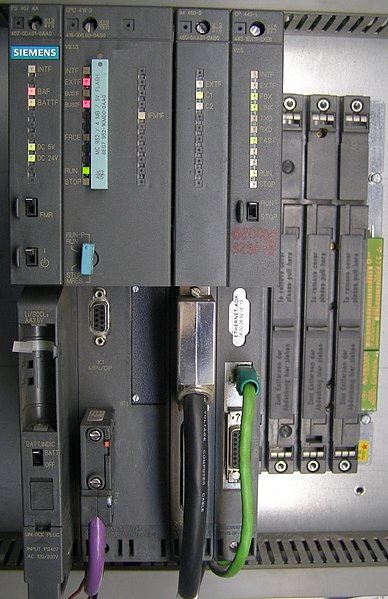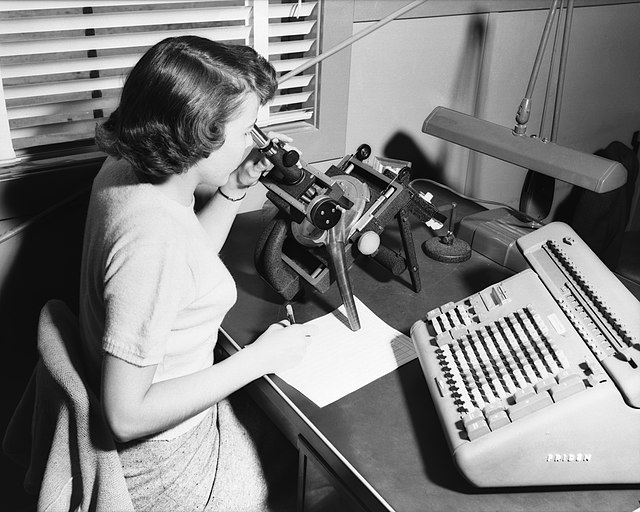Programmable logic controller
A programmable logic controller (PLC) or programmable controller is an industrial computer that has been ruggedized and adapted for the control of manufacturing processes, such as assembly lines, machines, robotic devices, or any activity that requires high reliability, ease of programming, and process fault diagnosis.
PLCs for a monitoring system in the pharmaceutical industry
Compact PLC with 8 inputs and 4 outputs
Modular PLC with EtherNet/IP module, discrete and analog I/O, with some slots being empty
PLC system in a rack, left-to-right: power supply unit (PSU), CPU, interface module (IM) and communication processor (CP)
A computer is a machine that can be programmed to automatically carry out sequences of arithmetic or logical operations (computation). Modern digital electronic computers can perform generic sets of operations known as programs. These programs enable computers to perform a wide range of tasks. The term computer system may refer to a nominally complete computer that includes the hardware, operating system, software, and peripheral equipment needed and used for full operation; or to a group of computers that are linked and function together, such as a computer network or computer cluster.
A human computer, with microscope and calculator, 1952
The Ishango bone, a bone tool dating back to prehistoric Africa
The Antikythera mechanism, dating back to ancient Greece circa 150–100 BCE, is an early analog computing device.
Charles Babbage c. 1850








